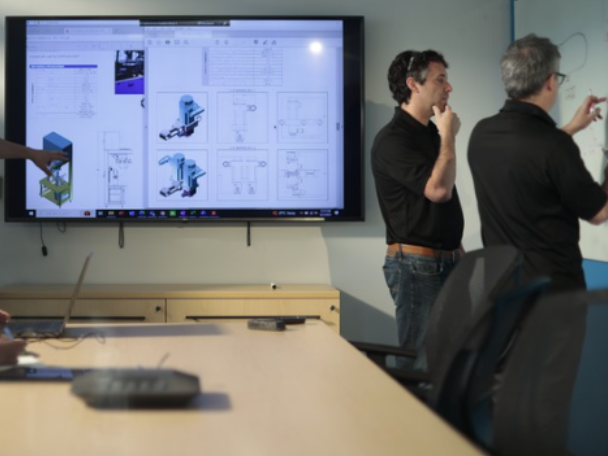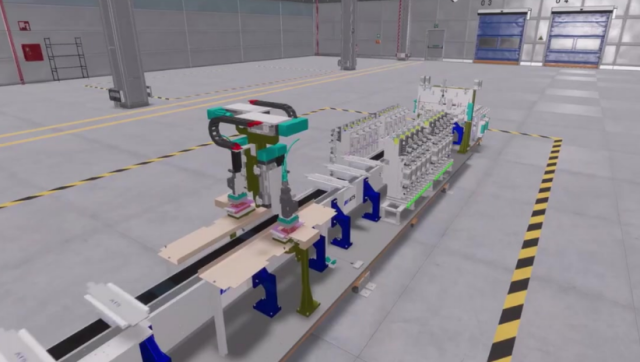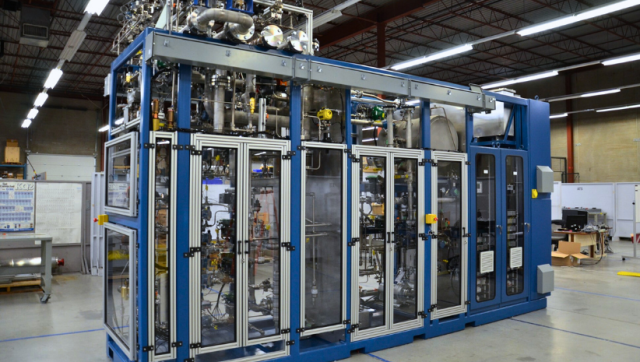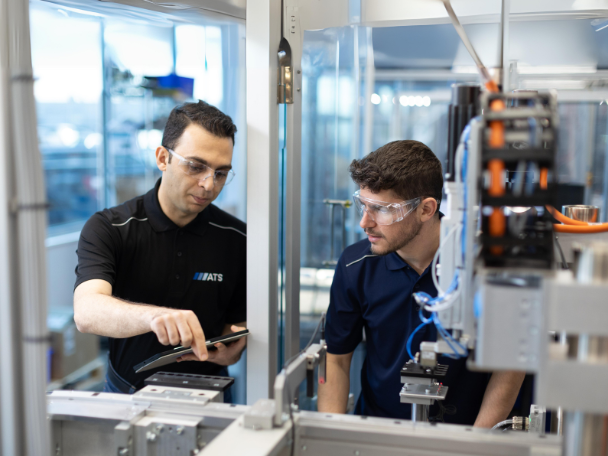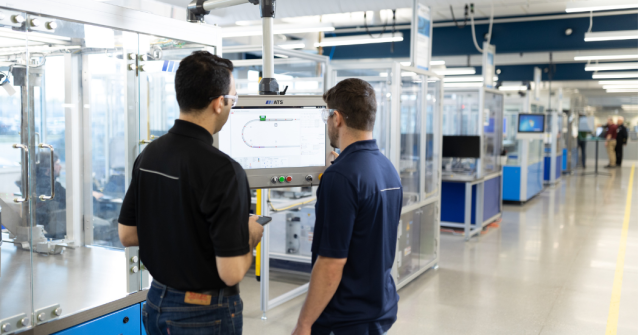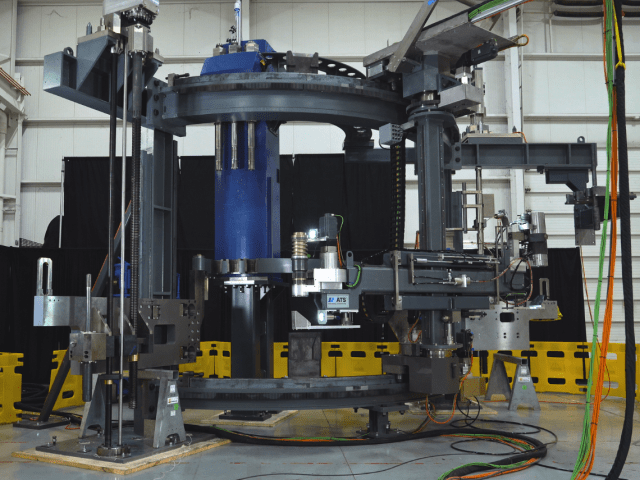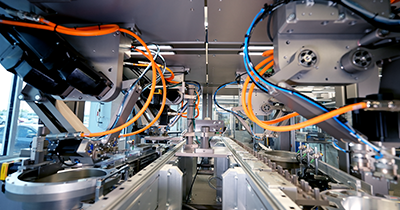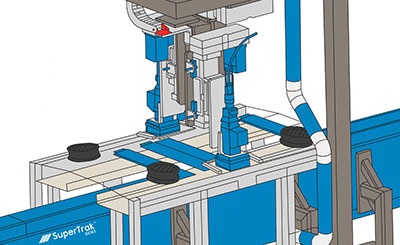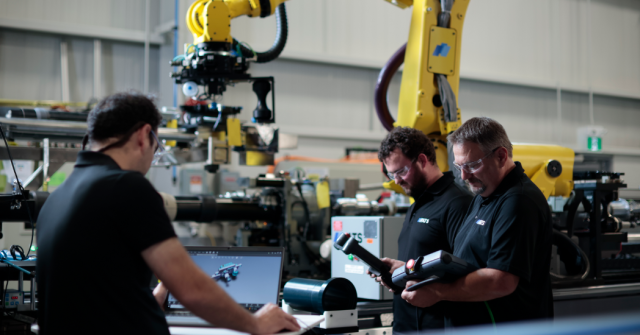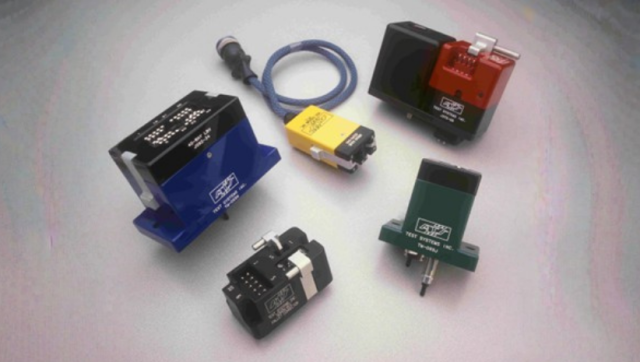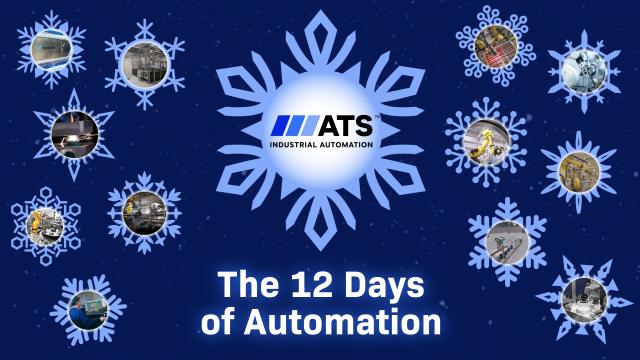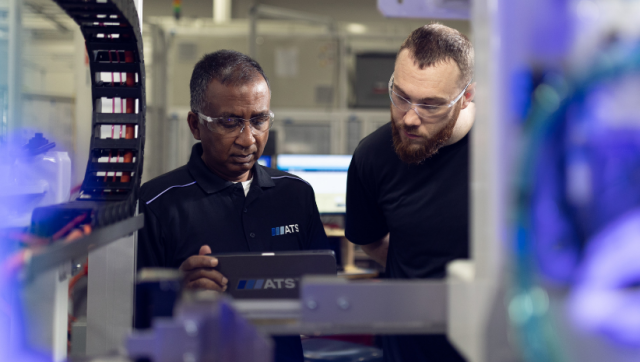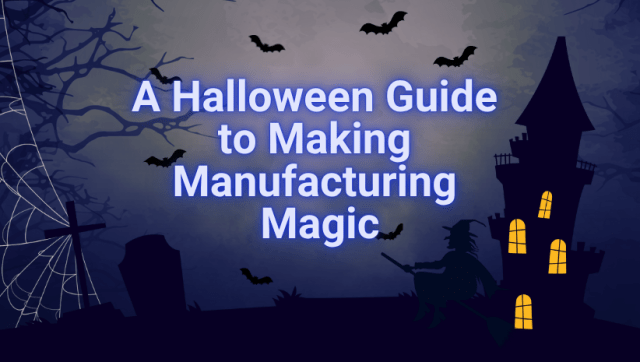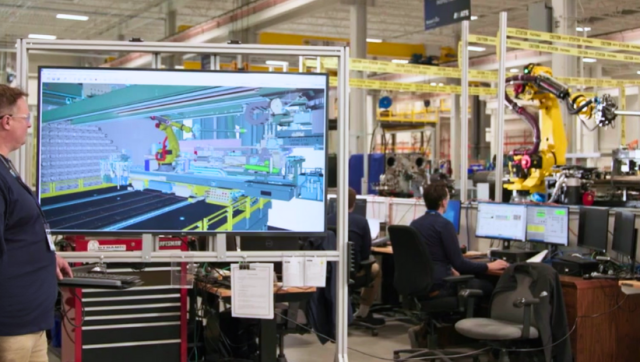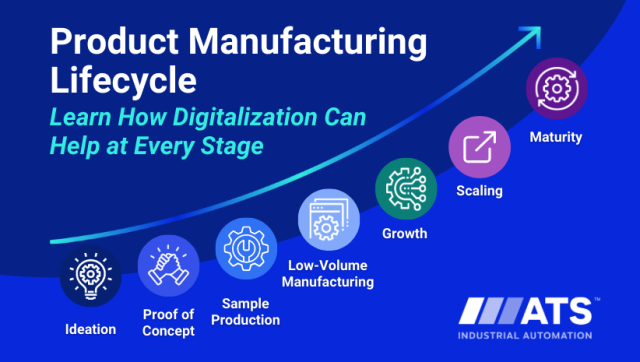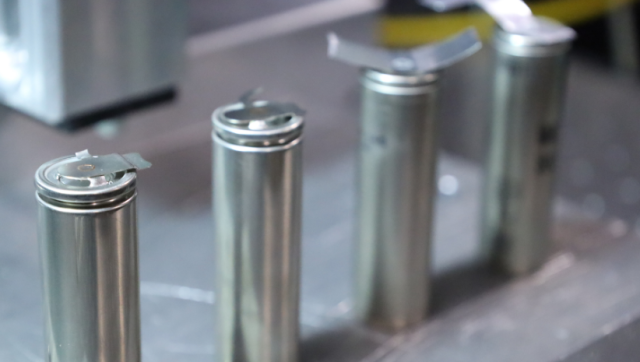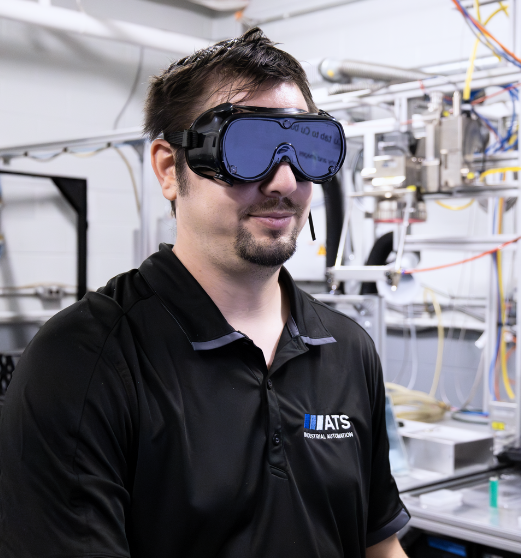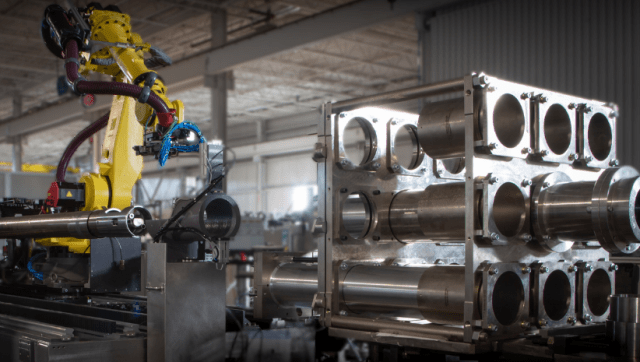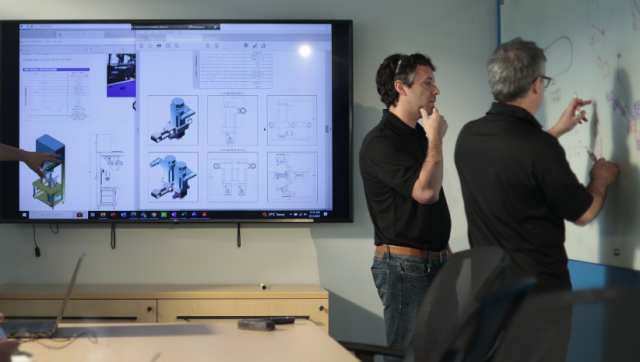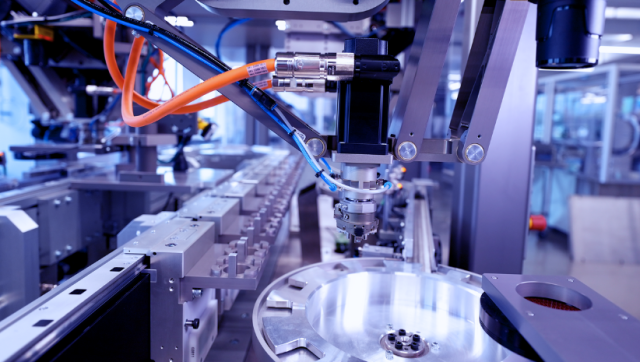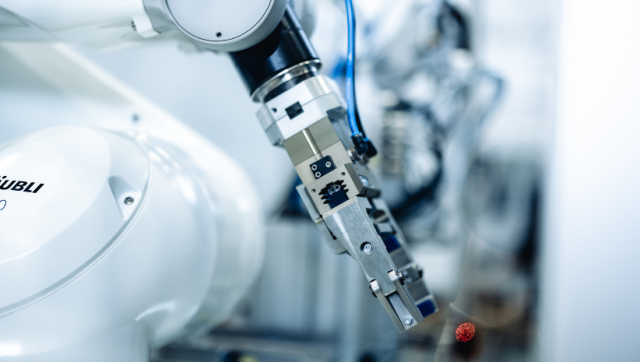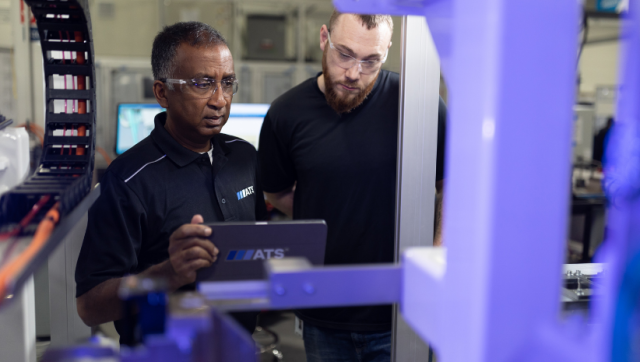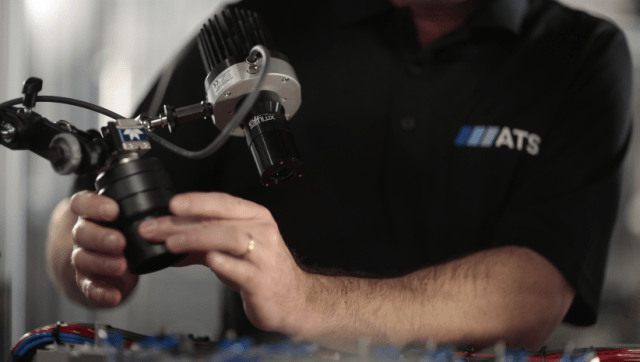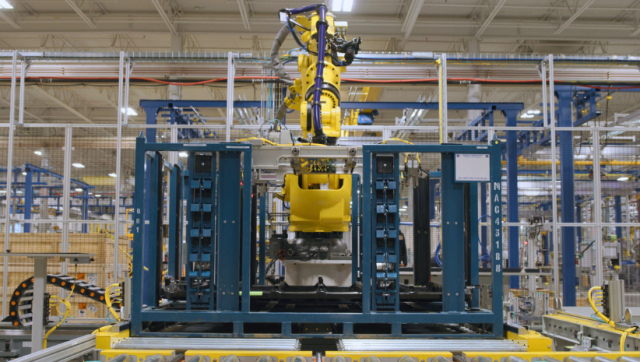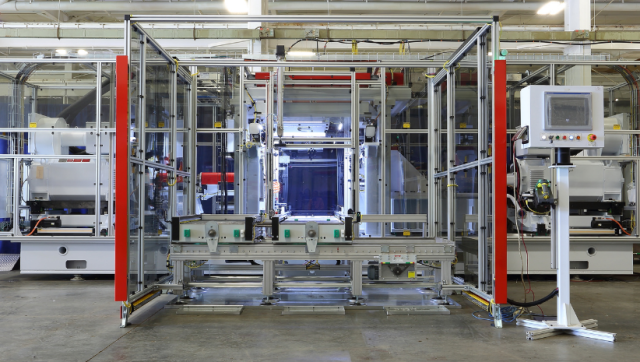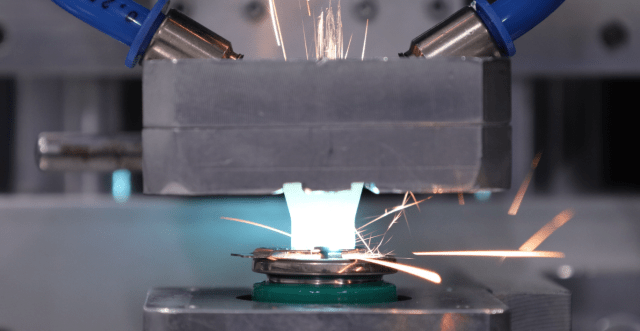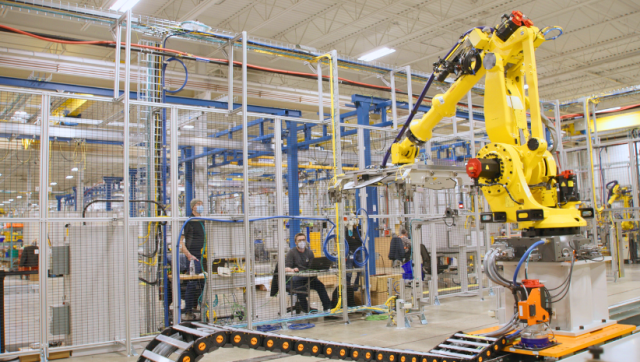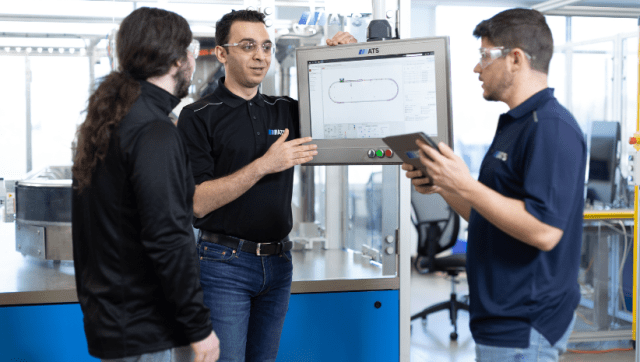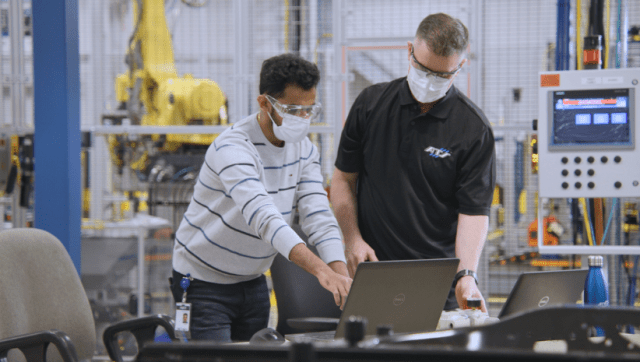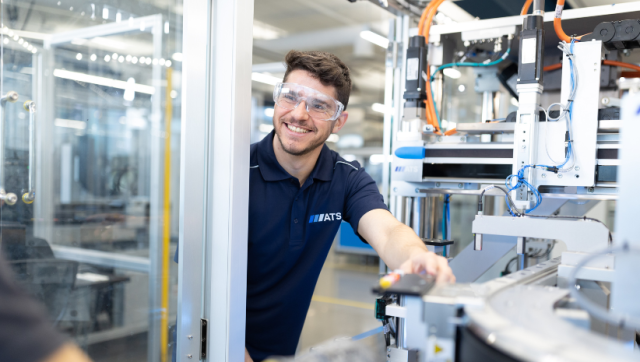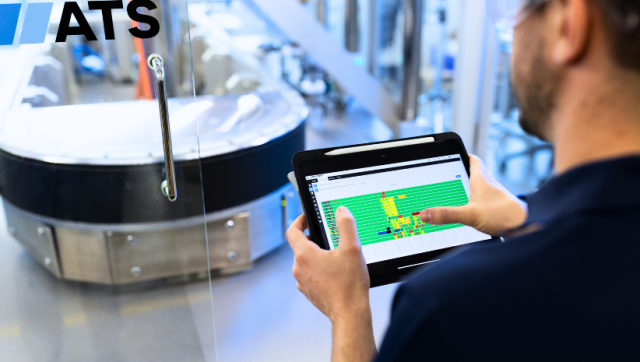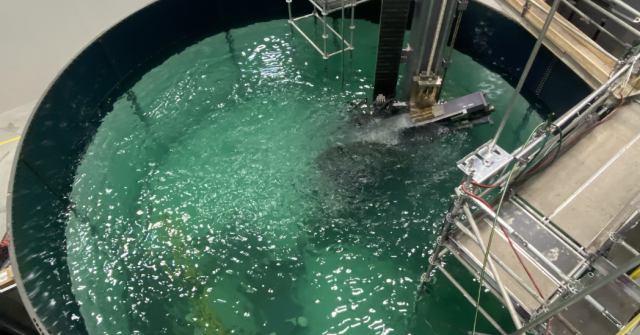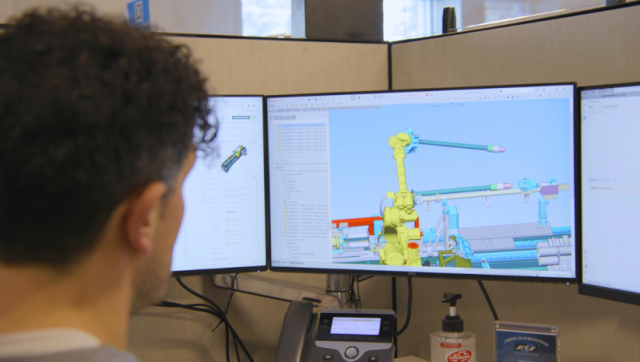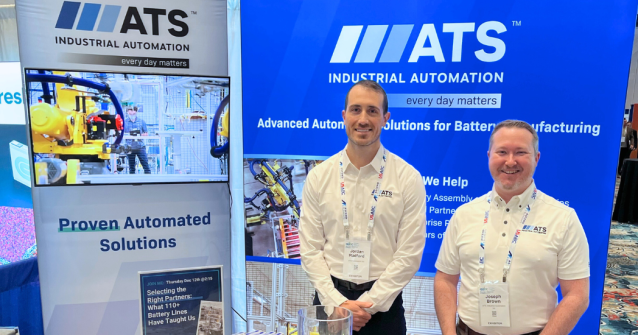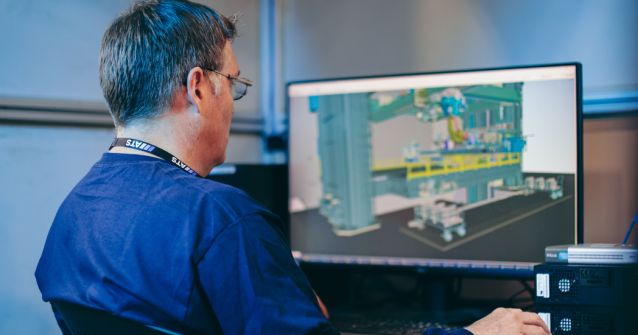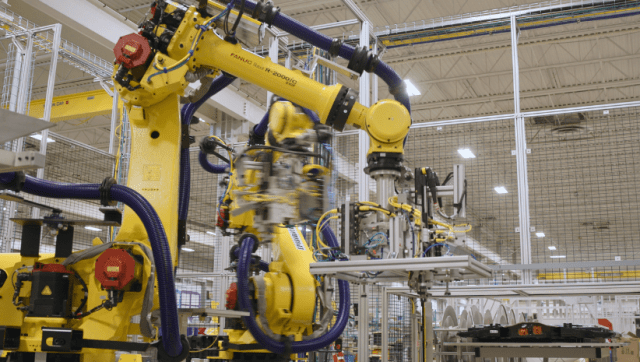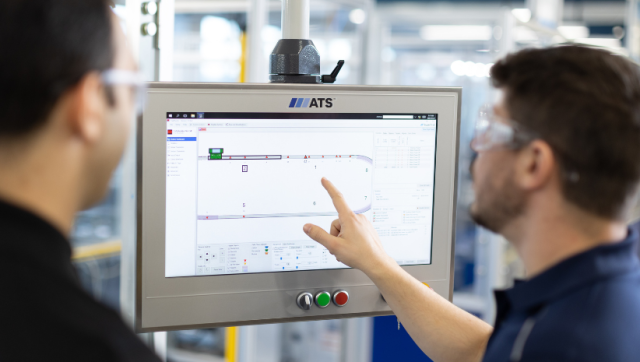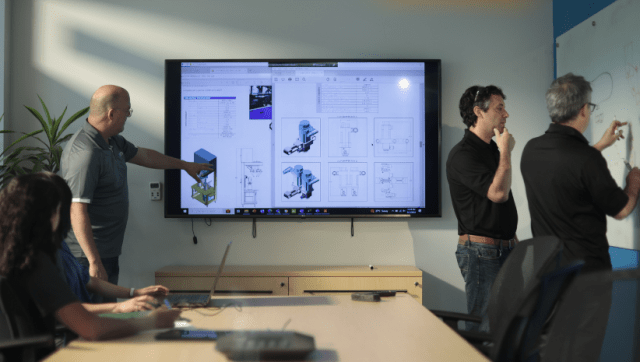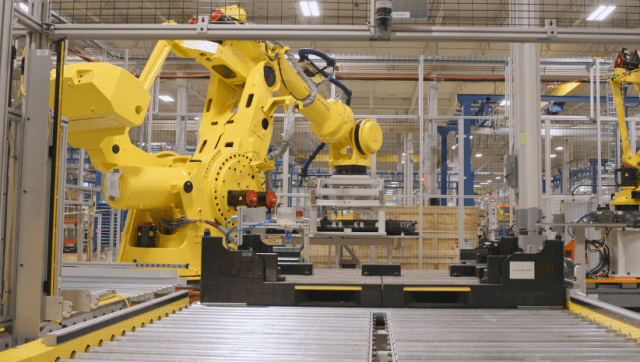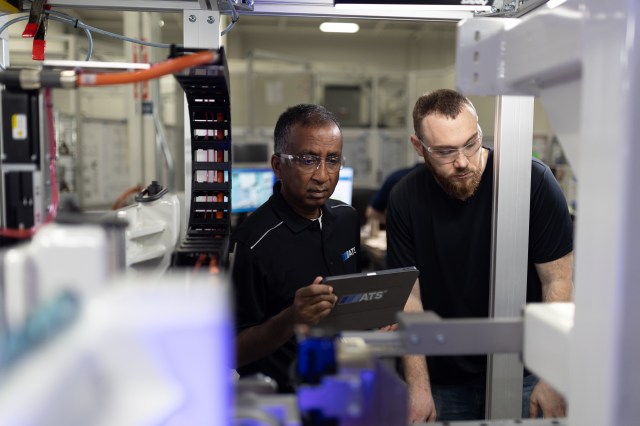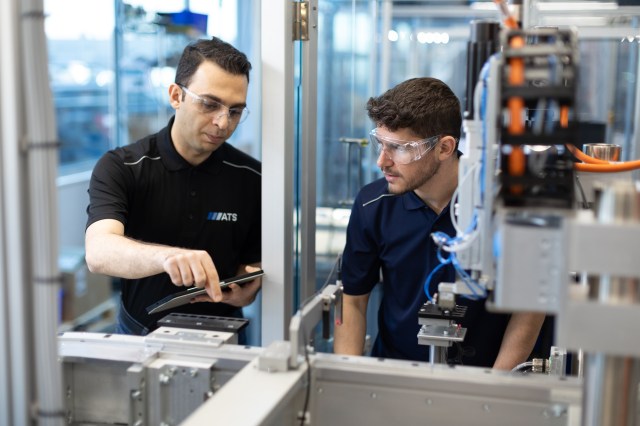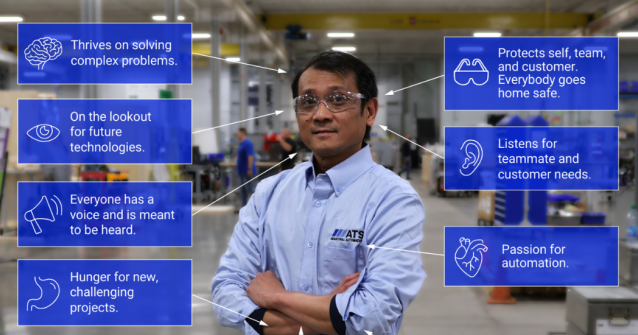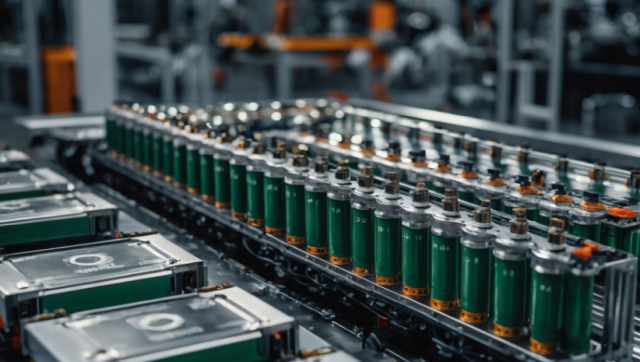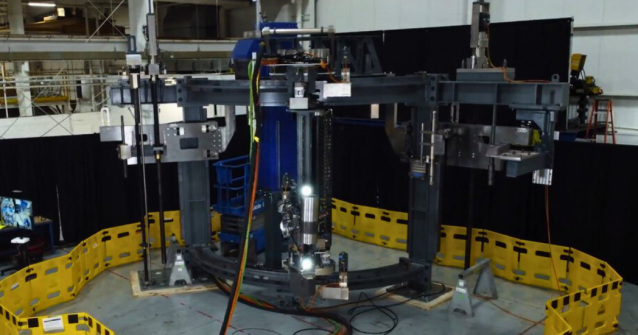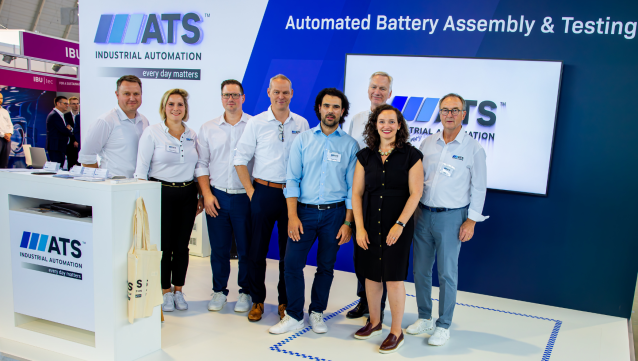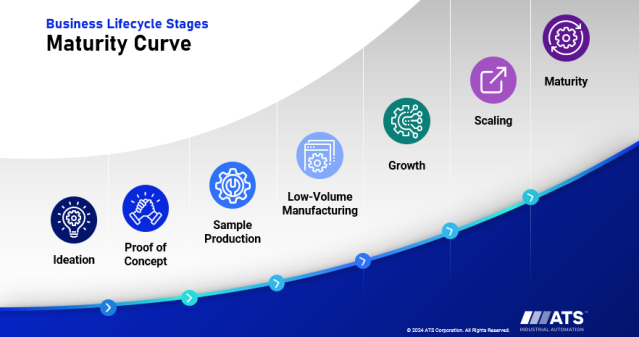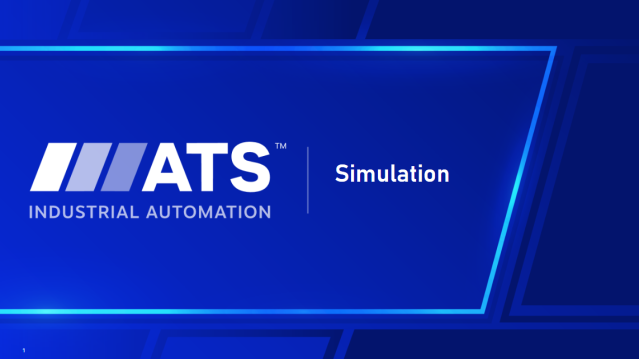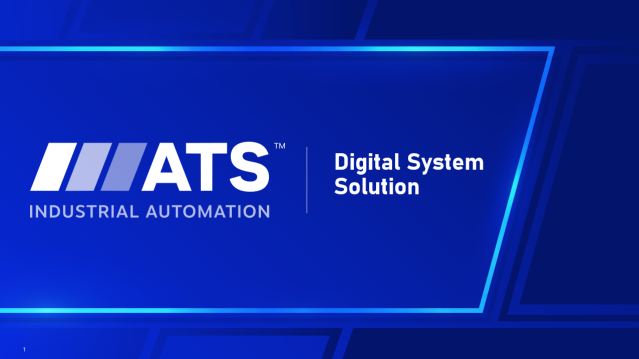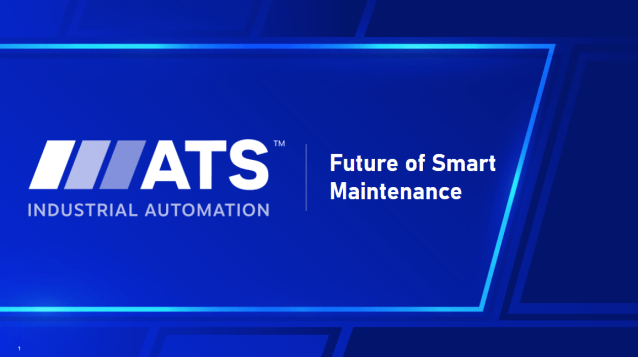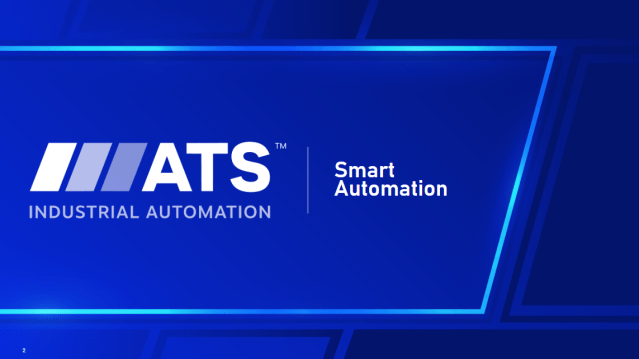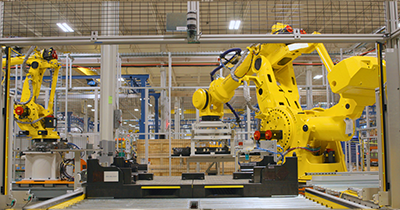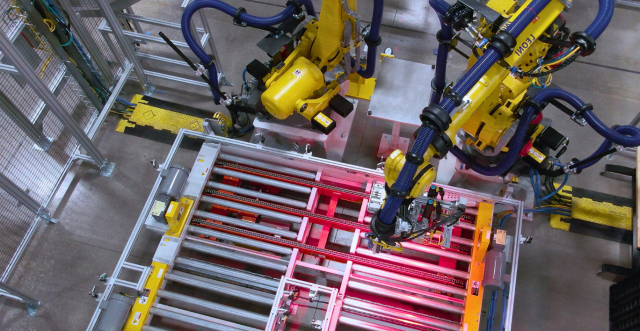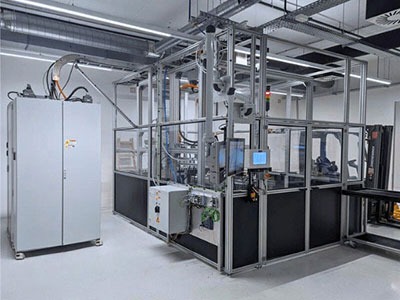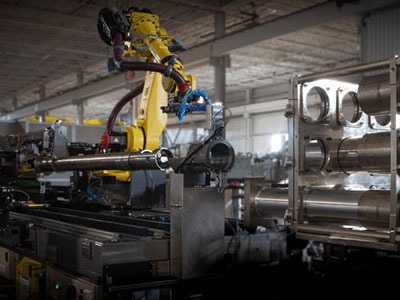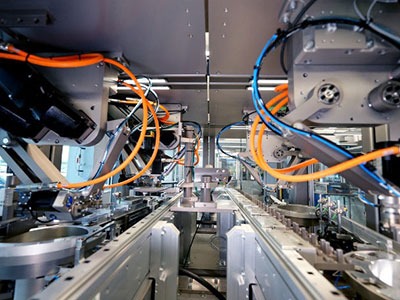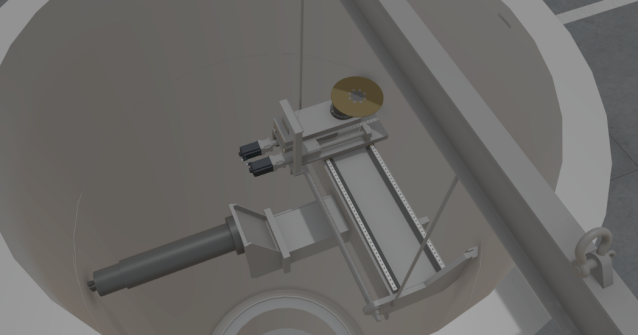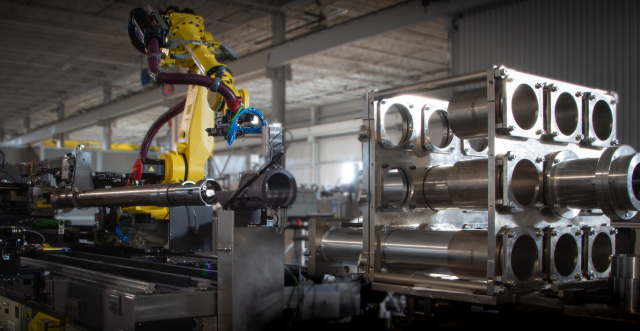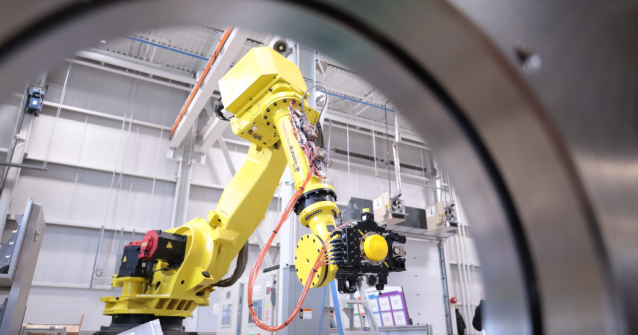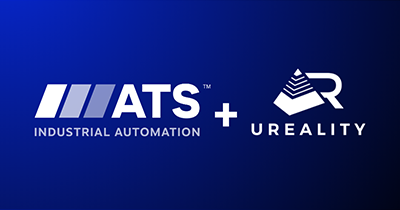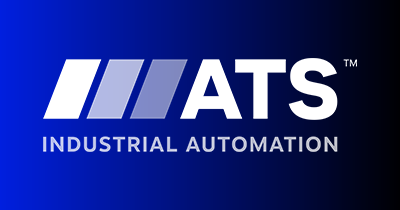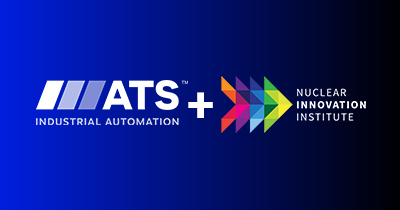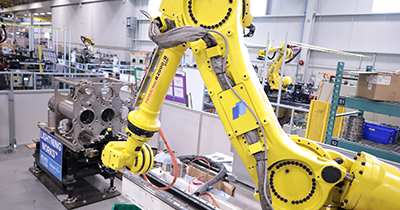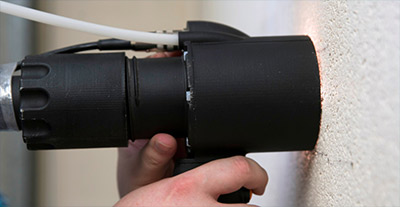In today’s fast-paced and ever-evolving business landscape, the decision to engage a manufacturing automation partner can be a competitive advantage for companies looking to scale production efficiently and cost-effectively while maintaining high-quality standards. The expertise and resources provided by an assembly automation partner can be invaluable in improving designs, streamlining operations and sourcing, reducing costs, and setting the stage for long-term success. Knowing when and why to bring in a manufacturing automation partner is crucial for any business aiming to stay competitive, grow their business and thrive.
1. Understand Current & Future Business Needs
Do you know where on the lifecycle maturity curve your product is today? Are you still in the idea phase, or have you moved on to the low-volume phase? Understanding where you are in the development lifecycle can determine when and how to engage a manufacturing automation partner.
Engaging an assembly automation partner early in the product development process can provide significant benefits, such as guidance on design for manufacturability (DFM). DFM ensures that your product is designed to enhance manufacturability while the manufacturing process can be developed and proven with proof-of-principle testing. By using DFM principles, manufacturers can meet their production goals while reducing costs and improving efficiency by preventing potential delays in the development of their lines.
2. Evaluating Current Capabilities
Evaluating your current manufacturing capabilities is critical in determining whether it is time to engage an assembly automation partner. To assess your capabilities, start by examining your existing production processes, equipment, and workforce skills. Identify gaps or inefficiencies that could hinder your ability to meet existing or future production goals and maintain quality standards.
Consider the scalability of your operations and whether your current operations infrastructure has sufficient capability and capacity to deal with increased demand or new product lines. Limitations such as outdated equipment, lack of subject matter experts (SMEs), or insufficient capacity might necessitate the involvement of an assembly automation partner. A machine builder can provide the necessary resources, advanced technology, and specialized knowledge to overcome these limitations, ensuring that your manufacturing processes are efficient, scalable, and capable of producing high-quality products.
3. Timing and Growth
During the scaling phase (moving from low to high-volume production), if the company has not identified a manufacturing automation partner, finding one becomes vital. When a company goes through that transition, the business has proven its product concept and established market demand, now it’s time to ramp up production to meet increasing customer orders. Engaging an assembly automation partner can provide the necessary expertise and resources to handle the complexities of large-scale manufacturing.
For example, businesses often seek assembly partners when introducing automation into an assembly line to improve efficiency, reduce costs, and maintain consistent product quality as volumes increase. In addition, help might be sought out when a company requires specialized knowledge in DFM to ensure the product can be efficiently produced at scale. By collaborating with an assembly automation partner, businesses navigate these growth challenges more effectively and achieve their production goals.
4. Cost and Efficiency
Engaging an assembly automation partner has benefits that outweigh the initial CapEX investment. A technology provider will bring experience, skills, and capacity to bear the manufacturing automation challenges. The benefits and cost trade-offs of this approach can only be understood with a holistic view of timing, long-term OEE, product quality, and the intrinsic value of a business meeting its production growth goals.
5. Quality Control & Product Validation
A manufacturing automation partner plays a crucial role in ensuring quality control and product validation by unitizing in-process gauging and statistical process control (SPC) or, where that is not possible, designing test methodologies and delivering equipment to validate, debug, and identify issues in the manufacturing process. Before a product reaches the consumer, it must be tested for quality, performance, durability, and overall functionality.
Is it Time to Engage with a Manufacturing Automation Partner?
Bringing in an assembly automation partner at the right time can be a strategic move that significantly enhances your business’s efficiency, scalability, and overall success.
A manufacturing automation partner brings the necessary expertise, advanced technology, and resources to navigate assembly production challenges. Finding the right assembly automation partner helps set you up for sustainable growth and provides you with a competitive edge in the market.
Every project is unique. Allow us to listen to your challenges and share how automation can launch your project on time.

Rob Faulhammer
Vice President of Sales, Specialty Automation
ATS Industrial Automation
Rob has helped companies of all kinds to automate and scale production for over 30 years. Rob works with customers throughout their lifecycle to configure services, systems and digital tools strategies to enable product manufacturing at scale.





